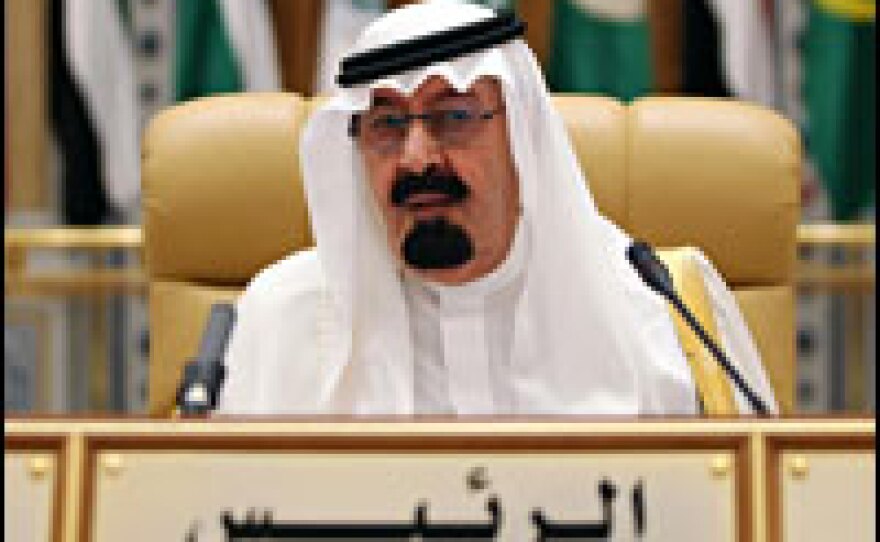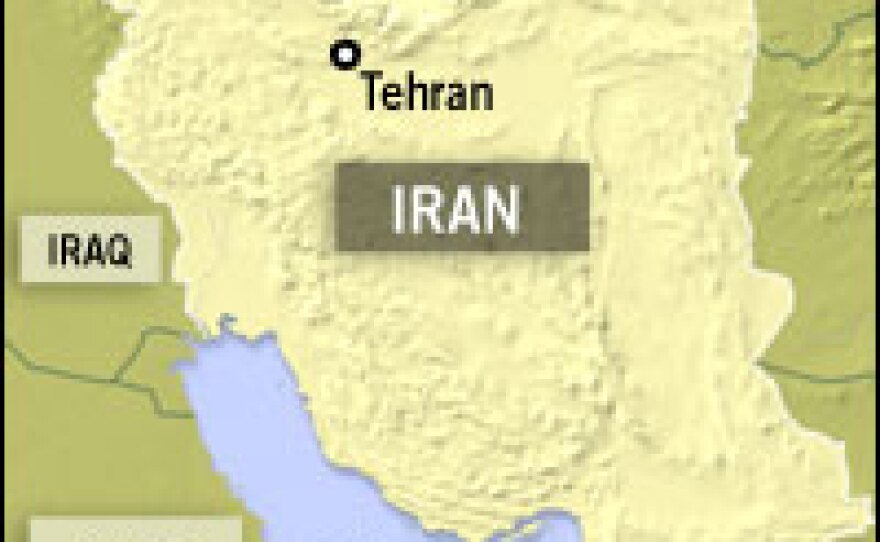

Iranian commentators are fond of mentioning that the histories of most modern gulf states are no more than the blink of an eye compared with Iran's rich past.
The Kingdom of Saudi Arabia has long viewed Iran as one of the cleverest and most ambitious states in the region and, at the moment, the view from Riyadh is that Iran's influence seems to be growing while that of the United States declines.
Saudis have watched with growing alarm as Iran forges closer ties to the new Shia-led government in Iraq and provides support to armed factions elsewhere, including Hamas in the Gaza Strip and Hezbollah in Lebanon.
For much of the past year there has been speculation that the Saudis would shed their preference for behind-the-scenes diplomacy and move to counter the rise of Iran.
Analysts say, however, that King Abdullah has his hands full with a domestic reform program that is upsetting the conservative religious establishment that the ruling family has long depended on for support.
Saudi in the Spotlight
Even so, the elderly monarch has gamely stepped into the diplomatic spotlight. In March, he startled some in the Bush administration when he called the U.S.-led presence in Iraq "an illegal foreign occupation." In that same speech, he listed the disasters and near-disasters facing the Middle East — Iraq, Iran's nuclear ambitions, Lebanon, the Palestinian territories — and bluntly told Arab leaders to stop laying all the blame at the feet of Israel and Washington.
The King's speech was a brief uncomfortable moment in an otherwise uneventful Arab summit, but it left many wondering what the Saudis might do next. Since then, the much-touted Mecca agreement that brought Hamas and Fatah factions of the Palestinian leadership together has collapsed, and Riyadh is said to be frustrated and angry over Tehran's involvement in both the Arab-Israeli conflict and the Lebanese crisis.
But analyst and businessman Yasin Alireza says the kingdom needs to keep Iran in check, but not at the cost of open confrontation.
"I think both Saudi Arabia and Iran — they don't want tensions among themselves, but the Iranians are now acting more in defense ... because they're afraid of the major power which has entered the area next to them, which is the U.S. in Iraq. So most of their actions are really defensive," Alireza says.
Others argue the world can't afford to assume that all of Iran's moves, especially its alleged bid to become a nuclear power, are purely defensive, because the stakes are so high.
Alireza says the more immediate concern is how Iran would react to a strike on its nuclear facilities. He doesn't believe, as many in the West do, that Saudi Arabia or other gulf states would be among Tehran's targets.
"In my opinion, that'll be madness because they'll be driving these Gulf countries to support the U.S. if they do that," Alireza says. "What they will do is provoke trouble in Iraq against the American forces. They will have their own people, and their supporters, the resistance forces and every type of troublemaker to create a problem for the U.S. But to create a problem with the Gulf would be disastrous for them."
Leading Moderates, Supplying Extremists
In the aftermath of the Sept. 11 attacks, King Abdullah was dismissed by some in the West as the autocratic ruler of a hotbed of Islamic extremism. Less than six years later, Saudi Arabia is viewed as the de facto leader of the "moderate Arab states," those the West is counting on to help lead the way toward peace in Iraq and Lebanon, and perhaps even find a path out of the seemingly endless Arab-Israeli conflict — all crises where the West is at odds with Iran.
To officials and analysts in Saudi Arabia, however, those expectations are unrealistic in the extreme, not least because of the volatile security situation the king faces at home.
Heavy security searches slow traffic to a crawl in some areas of Riyadh, part of an aggressive counter-terrorism effort. At the same time, Saudi extremists keep popping up in a number of regional hotspots. United States and Iraqi officials recently said as many as 45 percent of the foreign fighters in Iraq were coming from Saudi Arabia. Syria also announced it was holding a number of Saudis who tried to infiltrate Iraq, and Lebanese sources say Saudis are well-represented among the Islamist extremists fighting the Lebanese army at a refugee camp in the northern part of the country.
Preventing the Worst
Perhaps understandably, when it comes to dealing with Iran, people here find it easier to talk about why things have gone wrong than about how to make things right. In the Saudi view, the U.S.-led invasion of Iraq was a critical mistake that allowed Tehran to pursue its expansionist agenda.
Riyadh writer and academic Khaled Dakhil says that what is astonishing to many Saudis is that the Bush administration invaded Iraq without having an answer to the question of who would step into the power vacuum left by the toppling of Saddam. The answer, he fears, is Tehran.
"Now, their presence in Lebanon [and] their big presence in Iraq — these are very big gains. It coincided [with] the Arab states in the process of being weakened — from within and through the American policies in the region," Dakhil says.
He does not envision Saudi Arabia or any other Arab state taking over the role of counterweight to Iran anytime soon. He says King Abdullah understands the problem, but will most likely continue to use quiet diplomacy rather than confrontation.
"Well, I'm not sure that he has that many options in this. I think Saudi Arabia is just like the rest of the Arab states. They are weak. At this point, they are uncertain," Dakhil says. "The king is trying to do something, but I'm afraid that it is really just trying to prevent the worst from happening here."
The worst, in Saudi eyes, would be a United States or Israeli military strike against Iran. Saudis say whatever moves King Abdullah makes in the next 16 months — the remainder of President Bush's term in office — will likely be designed to keep that from happening.
Saudi professor Wahid Hamza Hashem says there's one thing the United States could do that would go a long way toward both containing Iran and making progress in the war on terrorism: not lose the war in Iraq.
Copyright 2022 NPR. To see more, visit https://www.npr.org. 9(MDAzMjM2NDYzMDEyMzc1Njk5NjAxNzY3OQ001))







